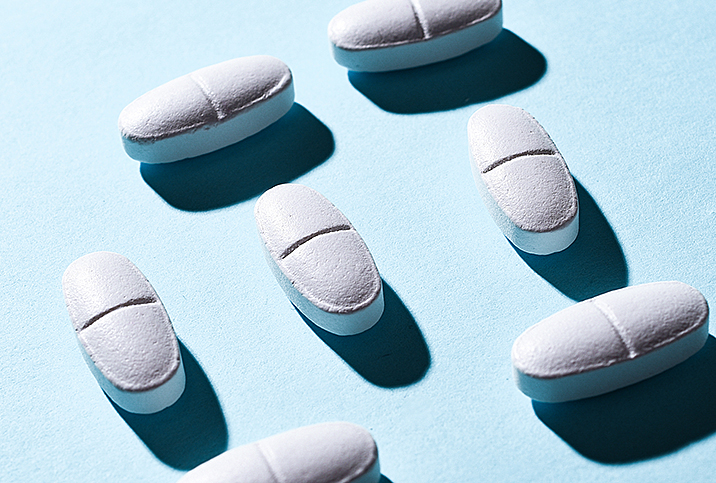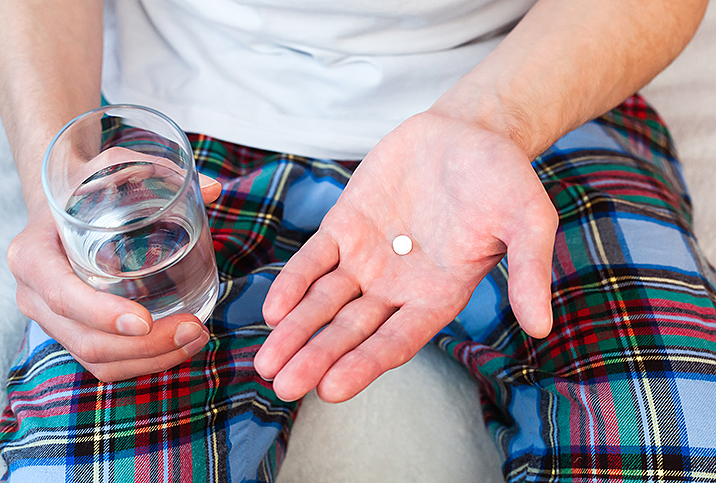7 Types of Medication That Can Cause Erectile Dysfunction

Erectile dysfunction (ED) is a common side effect of many different types of medications, including those that treat hypertension, high cholesterol and depression. These same health conditions are also common causes of ED, which can lead to much frustration among men who want to effectively treat their health problems and maintain a satisfying and fulfilling sex life.
If you use one or more medications that cause erectile dysfunction, understand that there are plenty of other treatment options and steps you can take to lessen the effects of ED if you must continue to use your medications.
One report found that up to 25 percent of all ED cases are a side effect of over-the-counter and prescription drugs. Find out more about seven medications that can cause erectile dysfunction, along with ways to prevent your treatment from negatively affecting your sex life.
Giddy urologist Dr. Edwin Morales explains in depth how certain medications can cause erectile dysfunction. Watch the video here.
Blood pressure medications
Diuretics and beta blockers are common treatments for hypertension (high blood pressure). Both of these medications, however, decrease blood flow to the penis, one of the main causes of ED. Diuretics also lead to zinc deficiency and that can escalate problems with testosterone production.
If your erectile dysfunction is driven by hypertension and/or blood pressure medications, ask your doctor about the possibility of switching to ACE inhibitors or calcium channel blockers. Essentially, you need a healthy heart in order to be safe to participate in sexual activity. For example, PDE5 inhibitors, such as Viagra or Cialis, are contraindicated, or not allowed, for use in patients who take nitrates as they can cause an unsafe drop in blood pressure. Hypertension also can be improved naturally with regular exercise and a healthy diet, though you should discuss this with your doctor before stopping any medications.
Cholesterol medications
High cholesterol is often treated with a class of drugs called statins (e.g., lovastatin, atorvastatin, simvastatin). Cholesterol plays an important role in testosterone production. If you want to continue using cholesterol medications, ask your doctor about fibrates, bile acid-binding resins and PCSK9 inhibitors, none of which have been linked to ED.
Epilepsy medications
Epilepsy is commonly treated with anti-seizure medications, such as carbamazepine, phenobarbital and valproic acid. These medications may be highly effective at preventing seizures, but they also affect nerve impulses related to sexual pleasure. Anti-seizure medications can interfere with testosterone production, too, ultimately reducing libido, lowering sperm count and causing ED. A patient must weigh the risk versus benefit of engaging in sexual activity.
If you have an epileptic condition and suffer from erectile dysfunction, ask your doctor about the possibility of reducing your dosage or trying a different medication.
Opioids
Opioids are meant to be used for a short time to reduce pain, but long-term opioid use can lead to the onset of depression and interfere with your body’s hormone levels, both of which can cause ED. Long-term opioid use for chronic pain can also cause hypogonadism, inhibiting production of testosterone. If you’re struggling with opioid abuse, seek professional help, whether that’s from a doctor, a counselor or a combination of both, and look at alternatives.
Antihistamines
Over-the-counter antihistamines work by blocking the action of histamines, which are chemicals in the body involved in allergic reactions. Unfortunately, histamines are part of the process of achieving and maintaining an erection; blocking them can lead to erectile dysfunction. One strategy is to plan your sexual activity around your antihistamine treatment as the effects of antihistamines usually last no longer than 24 hours.
Finasteride
Finasteride is the active ingredient in medications used to treat hair loss and benign prostatic hyperplasia (BPH), or an enlarged prostate. Finasteride works by blocking the action of an enzyme that converts testosterone into its active form (dHT, or dihydrotestosterone). Common side effects of finasteride are decreased libido, gynecomastia (male breast enlargement) and retrograde ejaculation—that is, when semen enters the bladder instead of going through the penis. Ask your doctor about alternative treatments that won’t cause erectile dysfunction.


















